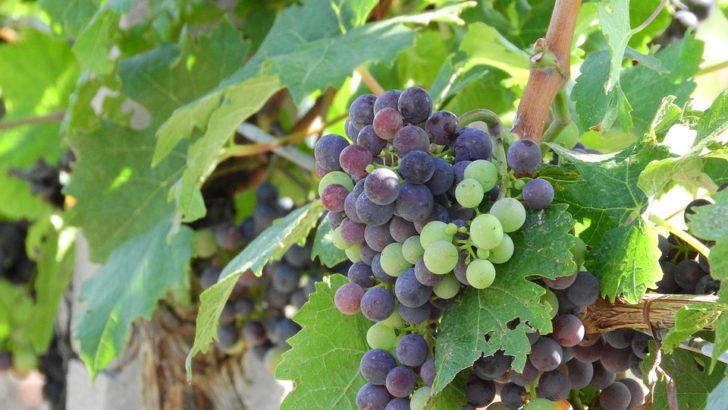Fungal vine disease fought with nanotechnology

Fungal disease of crop plants causes millions of Euros of damage in agriculture every year. Often, crops cannot be treated via commercial chemical protection. Scientists headed by Dr. Frederik R. Wurm of the Max Planck Institute for Polymer Research in Mainz, Germany, are developing a nanotechnology-based protection with minimal use of active agent, which avoids excessive spraying of fungicides.
The fungal disease "Esca" infects grapevines and causes great financial damage to winegrowers every year. The fungus infects the vine trunks and decomposes the wood from inside—so spraying cannot reach the fungus. Dr. Frederik R. Wurm and colleagues have developed a nanotechnology-based carrier to protect and heal the vine from the infestation. Here, "nanocarriers—i.e. small nanoparticles smaller than a millionth of a meter—made by chemical processes are filled with a commercially available fungicide. These nanospheres are inserted directly into the trunk of the plants.
The shell of these balls is made of lignin—a substance that is the main component of wood besides cellulose. Therefore, this shell can also be decomposed by the fungus, thus releasing the agent inside the nanoparticle. "It is almost like a Trojan Horse: the fungus decomposes the shell of our nanocarriers and releases the fungicide that fights it", says Wurm. One of the main advantages of the method of the scientists is that the agent is delivered slowly and over a long period of time.
After successful initial trials, more than 100 grapevines have now been treated by the interdisciplinary research team on a vineyard of the DLR in Neustadt a.d. Weinstrasse, Germany. Within several hours, they drilled holes into the trunks and inserted small tanks containing the agent. Scientists can expect initial results within a few weeks, but the plants will be observed for several years.
The project is carried out together with the "Institute for Biotechnology and Drug Research" (Kaiserslautern, Germany), and the "Dienstleistungszentrum Ländlicher Raum Rheinpfalz, Institut für Pflanzenschutz" (Neustadt a.d. Weinstrasse).
The technology has already been patented by Wurm and colleagues.
Source: https://nano-magazine.com/news/2018/5/30/fungal-vine-disease-fought-with-nanotechnology